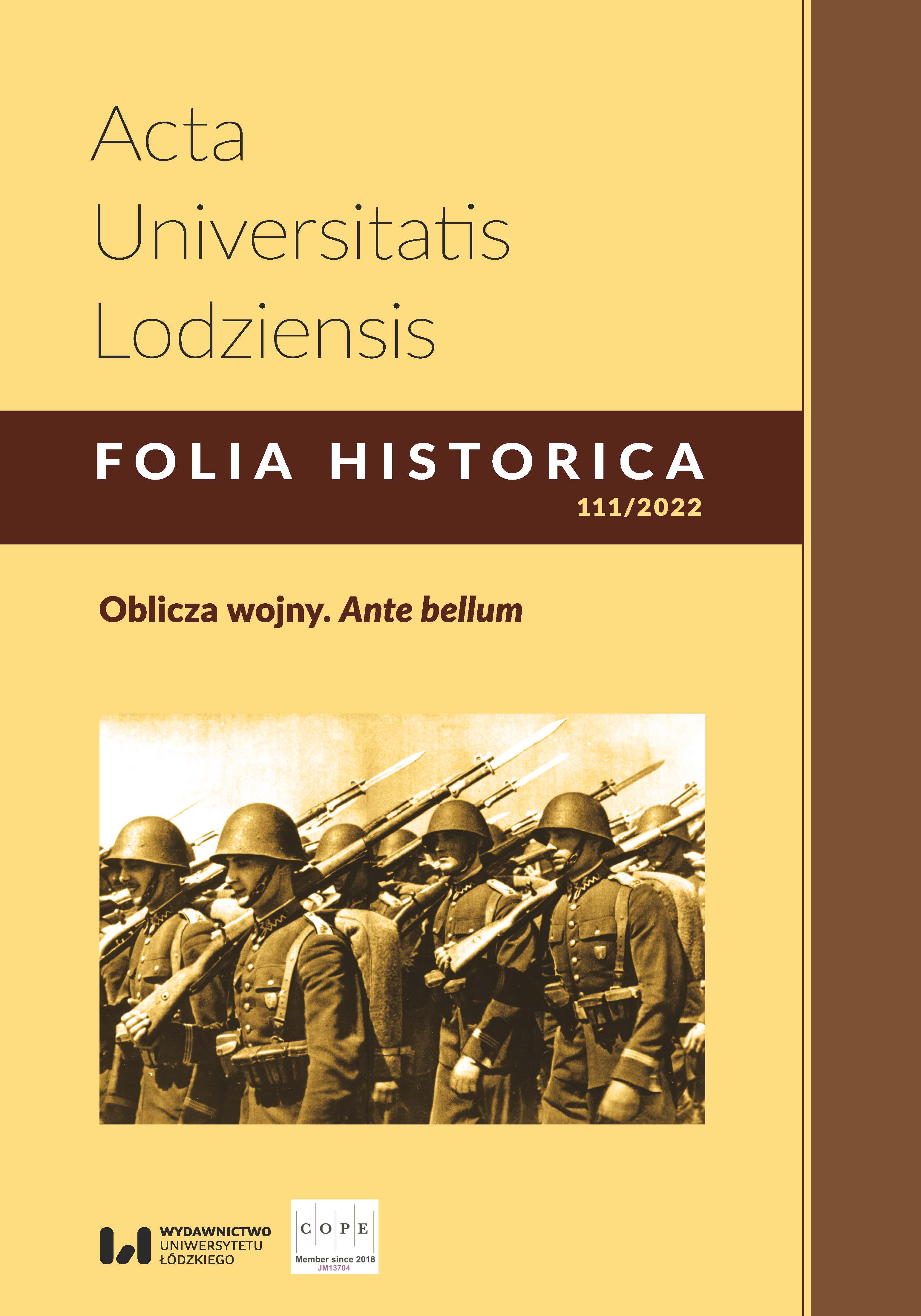On the way to the outskirts of Warsaw – the effects of the presence of the Polish, Prussian and Russian armies in the Lesser Poland estates of Count Antoni Józef Lanckoroński in June and July 1794
DOI:
https://doi.org/10.18778/0208-6050.111.07Keywords:
Kościuszko Uprising, battle of Szczekociny, battle on the outskirts of Warsaw, Lanckoroński family, wartime losses, WodzisławAbstract
The article discusses the economic and social consequences of the march of Polish, Prussian and Russian armies through the estates of Count Antoni Józef Lanckoroński: Kije, Kliszów, Motkowice and Wodzisław, located on the border of the former voivodeship of Kraków and Sandomierz. Before the battle of Szczekociny ( June 6, 1794) Polish and Russian armies were passing through this area, coming from the region of Połaniec and Opatów. After the battle, the combined Prussian and Russian armies, chasing Tadeusz Kościuszko’s army retreating to the north, found themselves again in the area. What is more, in the second half of June and at the beginning of July 1794, before a series of battles took place in southern Mazovia, culminating in a battle on the outskirts of Warsaw on July 7–10, 1794, the armies of the partitioning states were stationed in camp in the vicinity of the Kije, Kliszów and Motkowice estates. The marches of the armies caused quite a lot of material damage. This included the requisitioning of grain, livestock and foodstuffs, as well as thefts by soldiers and local peasants. Stealing draught animals also resulted in the degradation of peasant farms. In a social sense, the presence of the army revealed a very strong antagonism between the manor and the countryside, which manifested itself mainly through the active participation of peasants in robbing manors.
Downloads
References
Central’nij deržavnij іstoričnij Arhіv Ukraїni m. L’vіv [CDIAUL], fond 181: Lanckorons’ki
Google Scholar
Cynarski S., Dzieje rodu Lanckorońskich z Brzezia od XIV do XVIII wieku. Sprawy kariery urzędniczej i awansu majątkowego, Warszawa–Kraków 1996.
Google Scholar
Gloger Z., Encyklopedia staropolska ilustrowana, t. IV, Warszawa 1903.
Google Scholar
Herbst S., Z dziejów wojskowych powstania kościuszkowskiego 1794 roku, Warszawa 1983.
Google Scholar
Historia chłopów polskich, t. I (Do upadku Rzeczpospolitej szlacheckiej), red. S. Inglot, Warszawa 1970.
Google Scholar
Jewuła Ł., Kargol T., Ślusarek K., Dwór, wieś i plebania w przestrzeni społecznej zachodniej Małopolski w latach 1772–1815, Kraków 2015.
Google Scholar
Maciejak M., Bitwa pod Szczekocinami 6 czerwca 1794, Zabrze–Tarnowskie Góry 2014.
Google Scholar
Nawrot D., Skutki wojny 1812 roku dla wsi litewskiej, [w:] Studia z dziejów wsi polskiej na przełomie XVIII i XIX wieku, red. T. Kargol, B. Petryszak, K. Ślusarek, Kraków–Lwów 2015, s. 53–72.
Google Scholar
Szyndler B., Tadeusz Kościuszko 1746–1817, Warszawa 1991.
Google Scholar
Walter-Janke Z., Bitwa pod Szczekocinami 6 VI 1794, „Studia i Materiały do Historii Wojskowości” 1962, t. VIII, cz. 1, s. 151–211.
Google Scholar
Downloads
Published
How to Cite
Issue
Section
License

This work is licensed under a Creative Commons Attribution-NonCommercial-NoDerivatives 4.0 International License.











